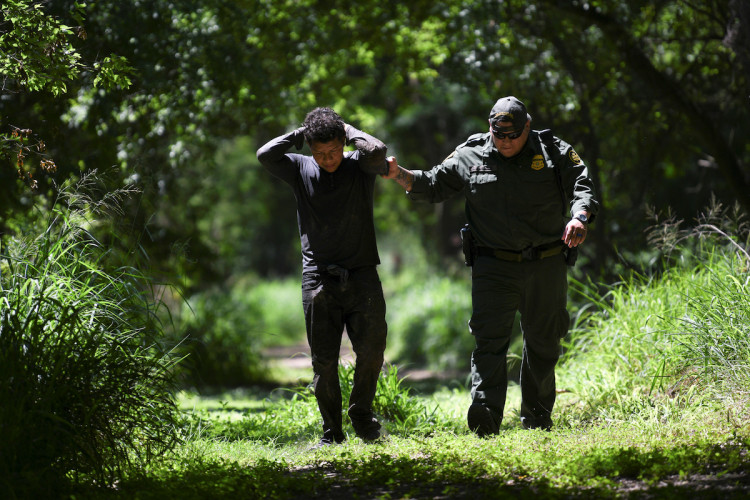The number of arrests for illegal border crossings from Mexico to the United States fell sharply in July, reaching a new low for President Joe Biden's administration. U.S. authorities reported a significant drop of about 30% in border arrests, suggesting that the temporary ban on asylum could soon be lifted.
Preliminary data indicates that the U.S. Border Patrol made approximately 57,000 arrests in July, down from 83,536 in June. This figure represents the lowest monthly tally since September 2020, when the COVID-19 pandemic greatly reduced cross-border movement globally. These numbers were shared by two U.S. Customs and Border Protection (CBP) officials who spoke to The Associated Press on the condition of anonymity, as the figures had not yet been publicly released.
The Biden administration had already seen a reduction in border arrests prior to invoking asylum suspension powers on June 5. Increased enforcement by Mexican authorities had halved the record-high arrests from December 2022, which stood at 250,000. Following the implementation of the asylum ban, arrests dropped by half again, aiding the White House in deflecting criticism from former President Donald Trump and other Republicans who have accused Democrats, including Vice President Kamala Harris, of losing control over the border.
Immigration remains a critical issue in the upcoming November election, as evidenced by the recent volley of campaign ads. The Trump campaign's latest television ad labels Harris as the "border czar" and blames her for the surge in illegal crossings. Meanwhile, a Harris campaign ad highlights Trump's opposition to a border bill that would have increased funding for Border Patrol agents and enhanced fentanyl detection efforts.
Despite the drop in arrests, the latest figures could bolster Harris's position as Republicans continue to criticize the Biden administration's immigration policies. Under the current asylum halt, authorities deny asylum to anyone who crosses the border illegally, with exceptions for unaccompanied children and those seeking other forms of protection with a higher bar for approval.
The asylum suspension is set to end if daily arrests fall below 1,500 over a seven-day average. Currently, arrests are hovering between 1,600 and 1,700 per day. If arrests reach a seven-day daily average of 2,500, the asylum halt will be reinstated, a threshold that was immediately met when the restrictions first took effect in June. Immigrant advocacy groups are challenging these asylum measures in court.
San Diego and Tucson, Arizona, were the busiest corridors for illegal crossings in July. The biggest declines in arrests were seen among Mexican nationals, who are easier to deport. However, the number of migrants from other countries has also decreased due to various travel restrictions. For instance, Chinese migration has slowed due to Ecuador's new visa requirements and an increase in U.S. deportations to China.
The Department of Homeland Security (DHS) highlighted that arrests had dropped by 55% since the asylum restrictions were implemented. A DHS statement from last week, referred to by officials on Wednesday, underscores this significant decline.
While the Biden administration prepares for the possibility of lifting the asylum ban, the political landscape remains fraught with challenges. The Trump campaign continues to leverage immigration as a key issue, while the Biden administration seeks to demonstrate progress in managing the border.





